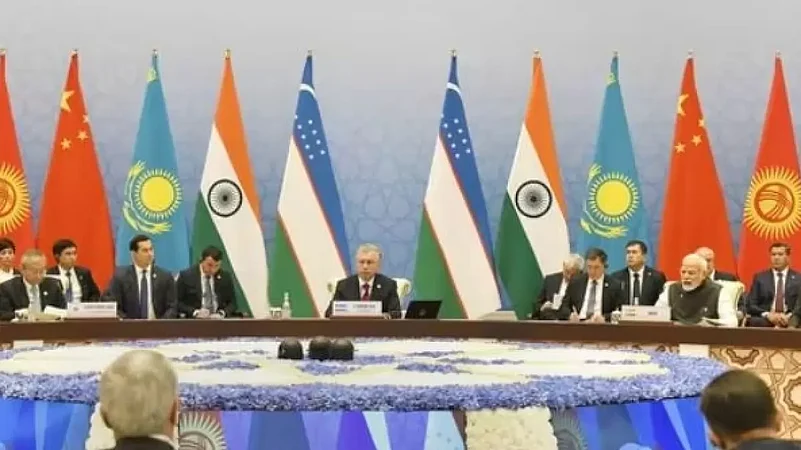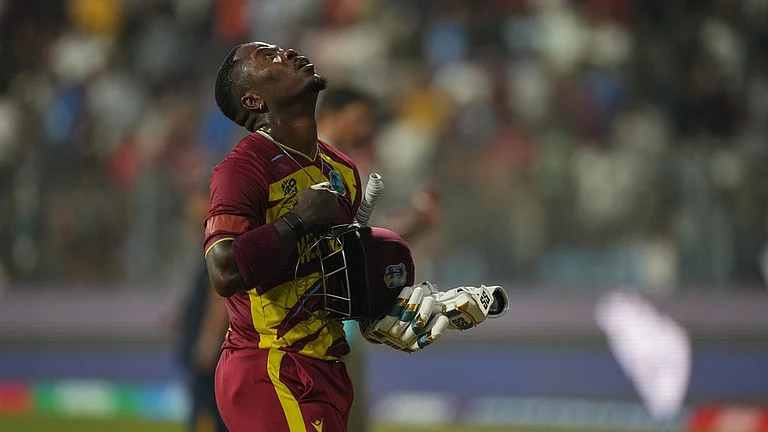India is hosting foreign ministers of the Shanghai Cooperation Organisation (SCO) nations at a two-day conclave in Goa with a discussion on the escalating confrontation between Russia and the West over the war in Ukraine and concerns over China's expansionist behaviour on the agenda.
With India holding the presidency this year, the country received for the first time since 2011 a high-level visit from Pakistan, as foreign minister Bilawal Bhutto Zardari's arrival to the coastal state made headlines on Thursday. Bhutto Zardari's visit to India to attend the SCO Council of Foreign Ministers (CFM) meeting comes amid continued strain in ties between India and Pakistan on a number of issues including Islamabad's persistent support to cross-border terrorism.
Meanwhile, Chinese foreign minister Qin Gang and Russia's Sergey Lavrov are also among those attending the meeting chaired by external affairs minister S Jaishankar.
What is Shanghai Cooperation Organisation? Why was it formed?
Founded on 15 June 2001, the SCO is a Eurasian political, economic, international security and defence organisation, which had its antecedent in the Shanghai Five.
The SCO currently comprises eight Member States – China, India, Kazakhstan, Kyrgyzstan, Russia, Pakistan, Tajikistan and Uzbekistan, four Observer States awaiting full membership – Afghanistan, Belarus, Iran, and Mongolia, and six “Dialogue Partners” – Armenia, Azerbaijan, Cambodia, Nepal, Sri Lanka and Turkey.
It is the world's largest regional body in terms of geographic scope and population, and it largely focuses on regional security issues, its fight against regional terrorism, ethnic separatism and religious extremism.
Here's a brief timeline:
2001: The Formation
In 1996, an regional organisation named Shanghai Five was formed on the basis of a mutual security agreement among China, Kazakhstan, Kyrgyzstan, Russia and Tajikistan. However, in 2001, these nations decided to admit Uzbekistan to the mechanism and announced a new organisation with deeper political and economic cooperation.
On 15 June 2001, in Shanghai, all six heads of state signed the Declaration of Shanghai Cooperation Organisation, aiming to take forward the work done thus far by the Shanghai Five.
2002
In June 2002, the heads of the SCO member states met in Saint Petersburg, Russia and signed the SCO Charter which expounded on the organization's purposes, principles, structures and forms of operation, and established it in international law.
2005: The Observers
In July 2005, the SCO summit was held in Astana in Kazakhstan. There, for the first time, representatives of India, Iran, Mongolia and Pakistan attended the event as Observers.
The organisation also established a relationship with the United Nations, the Association of Southeast Asian Nations (ASEAN), the Commonwealth of Independent States and a number of other similar global bodies.
On October 26, the SCO Interbank Consortium (SCO IBC) was established to provide funding and bank services for investment projects sponsored by the governments of the SCO member states. This council meets ad hoc upon the consensus of all members at least once per year. The Presidency of the Council is carried out on a rotational basis.
2006
On 14 June 2006, the SCO Business Council was founded as a non-government, independent entity capable of taking advisory decisions and giving expert assessments regarding the involvement of members of the business communities of the SCO member states in trade, economic and investment interaction within the framework of the Organisation.
2007
By now the SCO had rolled out more than 20 large-scale projects including transportation, energy and telecommunications. It was also holding regular meetings to discuss security, military, defence, foreign affairs, economic, cultural, banking, and other agendas with its member states.
Over the next few years, Afghanistan joined the organisation as an Observer, while Belarus, Sri Lanka and Turkey became Dialogue partners of the SCO.
2015-2017: India and Pakistan become members
It wasn’t until 2015 that India and Pakistan received the accession to be made permanent members of the SCO. Both countries signed the memorandum of obligations in June 2016 in Tashkent, Uzbekistan, thereby starting the formal process for membership.
On 9 June 2017, in a historic meeting in Astana of the Heads of State Council of the SCO, India and Pakistan became its full-time members.
2017-Present
Throughout its journey, the Shanghai Cooperation Organisation has actively worked towards its plans to combat drug trafficking, terror financing, along with other economic activities. It has also actively taken part in normalising the situation in Afghanistan.
To date, the cooperation between authorities of SCO member States has proved to be fairly successful. However, India and Pakistan have had several conflicts over border issues and the terrorism at the yearly summits.
With India taking over the SCO presidency, the country hosted more than 100 meetings and events this year. India is emerging as a key player among the SCO countries, though China and Russia are seen as the major drivers of the grouping that is increasingly being termed as an "alternative" to the North Atlantic Treaty Organisation (NATO).


























